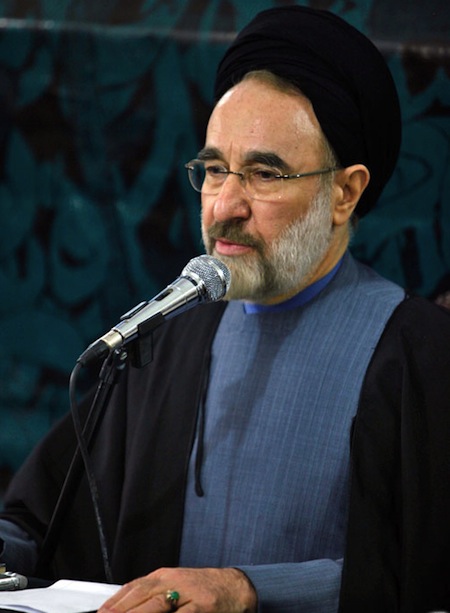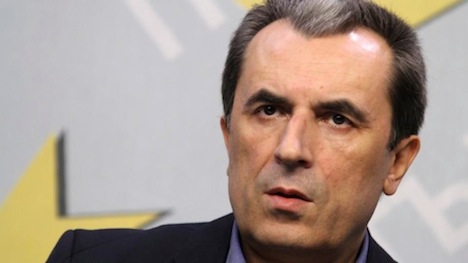Despite the fact that many U.S. commentators have written off Iran’s upcoming presidential election as somewhat of a bore with the rejection of the candidacy of former president Hashemi Rafsanjani, there’s still plenty of intrigue.![]()
If the first step of the Iranian presidential election was the ‘pre-qualification’ phase, and we’re currently in the second phase, the third and final phase is likely to be the whittling down of the current eight remaining candidates to just one or two major conservative frontrunners (perhaps Iran’s nuclear negotiator Saeed Jalili) and one moderate candidate.
Rafsanjani’s exit from the campaign doesn’t mean that reformists don’t have options, and one of the key questions is whether reformists (and moderates like Rafsanjani) will unite behind a single candidate and, if so, who they will support and how strongly they will support him.
No one is more central to that question that another former Iranian president, Mohammed Khatami, who succeeded Rafsanjani in 1997 as a surprising dark-horse presidential candidate.
Khatami is by far the most liberal of the four major presidents of Iran’s Islamic Republic — the conservative Ali Khamenei has been the country’s Supreme Leader since 1989, Rafsanjani has always been a middle-of-the-road, moderate conservative in Iranian politics, and Mahmoud Ahmadinejad has been a stridently conservative president, even if he’s clashed with the Supreme Leader and even though he’s been more populist than his predecessors.
Although Ahmadinejad has, in some ways, proven more successful in clawing more power for the presidency, Khatami wasn’t wholly ineffective as president. He oversaw a period of looser restrictions on freedoms in Iran, deeper engagement among Iranian civil society groups and, while U.S.-Iranian relations were not necessarily good during the Khatami era, he promoted what he called a ‘dialogue among civilizations’ between the Islamic Republic and the West.
Khatami, who openly supported Rafsanjani’s now-aborted presidential campaign, has been coy about his favorite among the eight remaining candidates. For his part, Rafsanjani has also been quiet.
But there are essentially just two candidates that either Khatami or Rafsanjani are likely to support: Mohammed Reza Aref and Hassan Rowhani. Continue reading What will Mohammed Khatami do?

